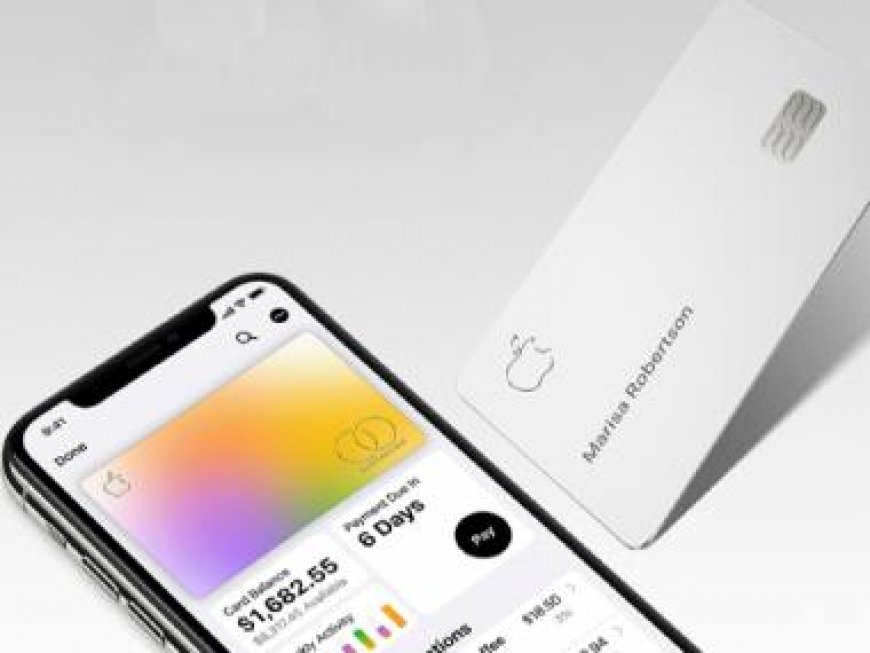Along with credit card, Apple is also planning to launch a payment app to take on PayTM, Google Pay
Along with credit card, Apple is also planning to launch a payment app to take on PayTM, Google Pay

Apple is reportedly planning to launch its digital payments app, Apple Pay, in India following the success of Google Pay, Paytm, and other similar apps. The tech giant is said to be in discussions with the National Payments Corporation of India (NPCI) to create a localized version of the app for the Indian market. Initial talks have taken place, and Apple is now progressing with its plans. Apple also plans to introduce the Apple Card, Apple’s own premium credit card in India.
Apple also engaged in discussions with banks and regulators in India with the intention of introducing its credit card to the Indian market. During CEO Tim Cook’s visit to India in April, he met with HDFC Bank CEO and Managing Director, Sashidhar Jagdishan.
Additionally, Apple held talks with the Reserve Bank of India (RBI) regarding the specifics and operational details of the card. According to reports from Moneycontrol, the RBI has requested Apple to adhere to the standard procedures for co-branded credit cards, and refused to provide any special concessions to the company.
What is Apple Pay and the Apple Card?
Apple Pay, a contactless payment solution utilizing near-field communication (NFC) technology, offers users the ability to make payments by simply holding their iPhone or Apple Watch close to a contactless reader. However, a notable challenge in implementing Apple Pay in India is the limited availability of NFC support in most smartphones and POS machines in the country, especially when we move away from Tier-I cities.
Apple Pay presents a straightforward, secure, and private payment option across a range of Apple devices, including the iPhone, iPad, Apple Watch, and Mac. Users can associate their credit, debit, or prepaid cards from participating banks and issuers, encompassing multiple countries within the Asia-Pacific region.
The Apple Card on the other hand is a credit card that Apple has launched as a premium offering. In the US, Apple issues the card in partnership with Goldman Sachs and Mastercard. Because the laws and regulations around Credit Card issuance is far more lax in the US, that it is in India, Apple has been able to play around with the design of the card. For example,it just Apple’s logo and the customer’s name on the front.
Furthermore, in the United States, the Apple Card features the names of Goldman Sachs and Mastercard on its reverse side. Unlike traditional credit cards, the Apple Card does not display a printed card number.
Furthermore, Apple offers users of the Apple card a lot of benefits, which, it might not be able to in India, owing to RBI regulations.
Why is India getting the Apple Card before other Asian markets?
Apple has been focusing on India as a significant market, experiencing substantial growth in iPhone sales. In FY23, Apple’s revenue in India reached around Rs 50,000 crore ($6 billion), a 50 per cent increase from FY22. The company’s global services revenue stands at approximately $80 billion. Introducing the Apple Card in India could have a significant impact, considering the potential to convert a considerable portion of transactions.
During Tim Cook’s visit in April, Apple launched exclusive retail stores in Delhi and Mumbai and has been gradually shifting iPhone production to India. The country could account for about 25 per cent of Apple’s total mobile phone production in the next few years.
Currently, Apple holds a 4 per cent share of the Indian smartphone market, with approximately two crore users. If a significant portion of Indian smartphone users (20-30 per cent) switch to iPhones over the next decade, similar to other middle-income countries, India could become Apple’s third-largest market, following the US and China.
One factor that may have influenced Apple’s decision to launch the Apple Card in India ahead of Japan or European countries is the inability to accept card payments in India. In India, most App Store purchases are powered by UPI (Unified Payments Interface), except for services like iCloud storage and music.
Challenges for Apple
The Apple Card is closely integrated with Apple Pay, and the cashback rewards earned are deposited into the user’s Apple Wallet, accruing an annual interest rate of 4.15 per cent.
Notably, the Apple Card does not impose any annual fees. In the United States, Apple Card users have the option to purchase Apple products in interest-free instalments. Additionally, customers can earn cashback of approximately 3-5 per cent when purchasing Apple products and services. Apple may also establish partnerships with other premium brands, offering 2-3 per cent cashback or reward points for purchases made with these partners.
In the US, Apple Card holders benefit from a daily 2 per cent cashback when using their card via Apple Watch or iPhone. Furthermore, the card provides 3 per cent cashback at major merchants.
In India, Apple might not be able to do a lot of things, which include issuing the card itself. They will also not be able to launch the physical titanium card as they have done in the US. This is so because credit cards are heavily regulated in India, and the RBI has regulations regarding what can banks offer and charge credit card customers.
The RBI also issued a directive last year stating that banks and their partners are not allowed to store customer data or transaction data. This will apply to the Apple Card as well, meaning that Apple cannot store the card details on its platforms in India. This regulation differs from practices in other countries where Apple operates.
Read all the Latest News, Trending News, Cricket News, Bollywood News,
India News and Entertainment News here. Follow us on Facebook, Twitter and Instagram.
What's Your Reaction?

























































